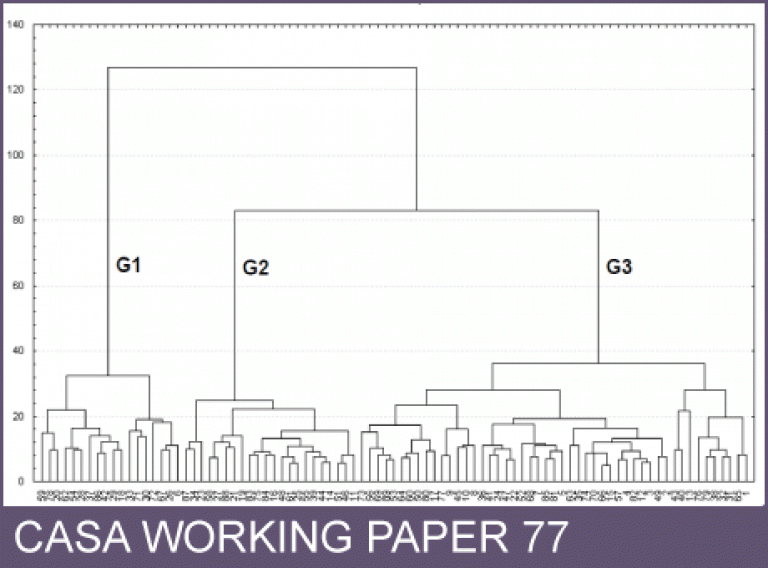CASA Working Paper 77

1 March 2004
Spatial Ability, Urban Wayfinding and Location-Based Services: a review and first results
Location-Based Services (LBS) are a new industry at the core of which are GIS and spatial databases. With increasing mobility of individuals, the anticipated availability of broadband communications for mobile devices and growing volumes of location specific information available in databases there will inevitably be an increase in demand for services providing location related information to people on the move. New Information and Communication Technologies (NICTs) are providing enhanced possibilities for navigating 'smart cities'. Urban environments, meanwhile, have increasing spatial complexity. Navigating urban environments is becoming an important issue.
The time is ripe for a re-appraisal of urban wayfinding. This paper critically reviews the current LBS applications and raises a series of questions with regard to LBS for urban wayfinding. Research is being carried out to measure individuals' spatial ability/awareness and their degree of preference for using LBS in wayfinding. The methodology includes both the use of questionnaires and a virtual reality CAVE. Presented here are the results of the questionnaire survey which indicate the relationships between individuals' spatial ability, use of NICTs and mode preference for receiving wayfinding cues. Also discussed are our future research directions on LBS, particular on issues of urban wayfinding using NICTs.
This working paper is available as a PDF. The file size is 267KB.
Authors: Chao Li
Publication Date: 1/3/2004
 Close
Close

